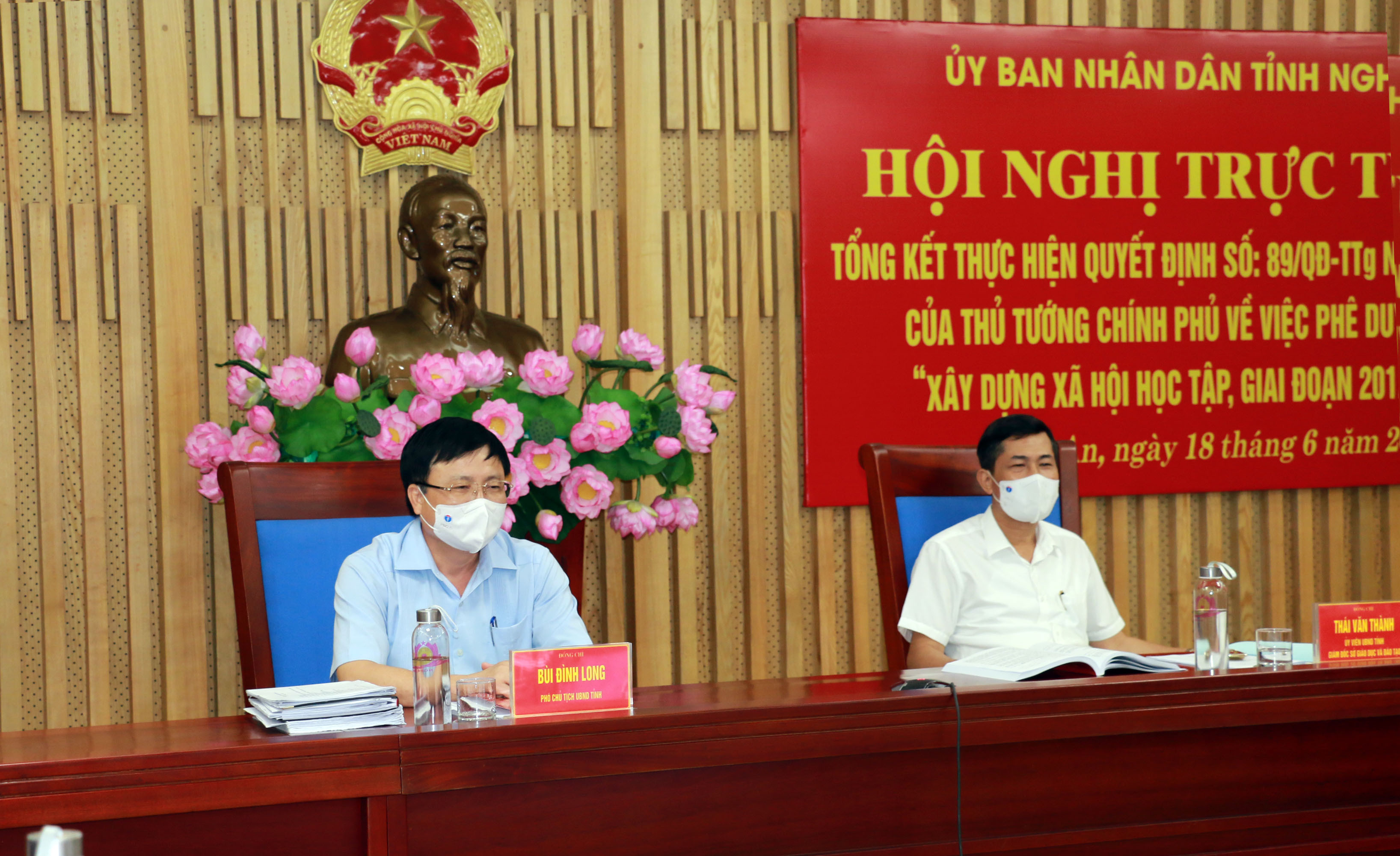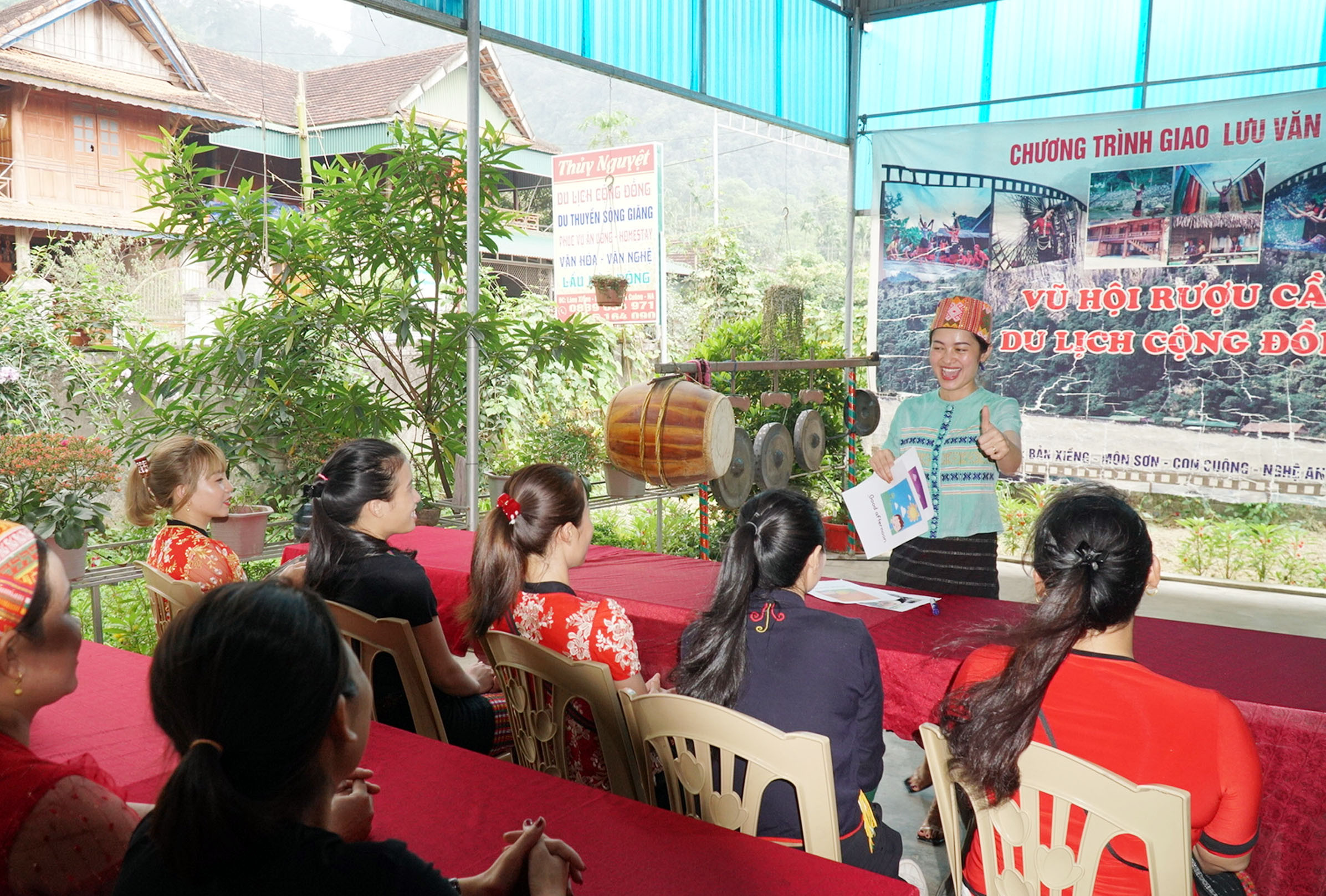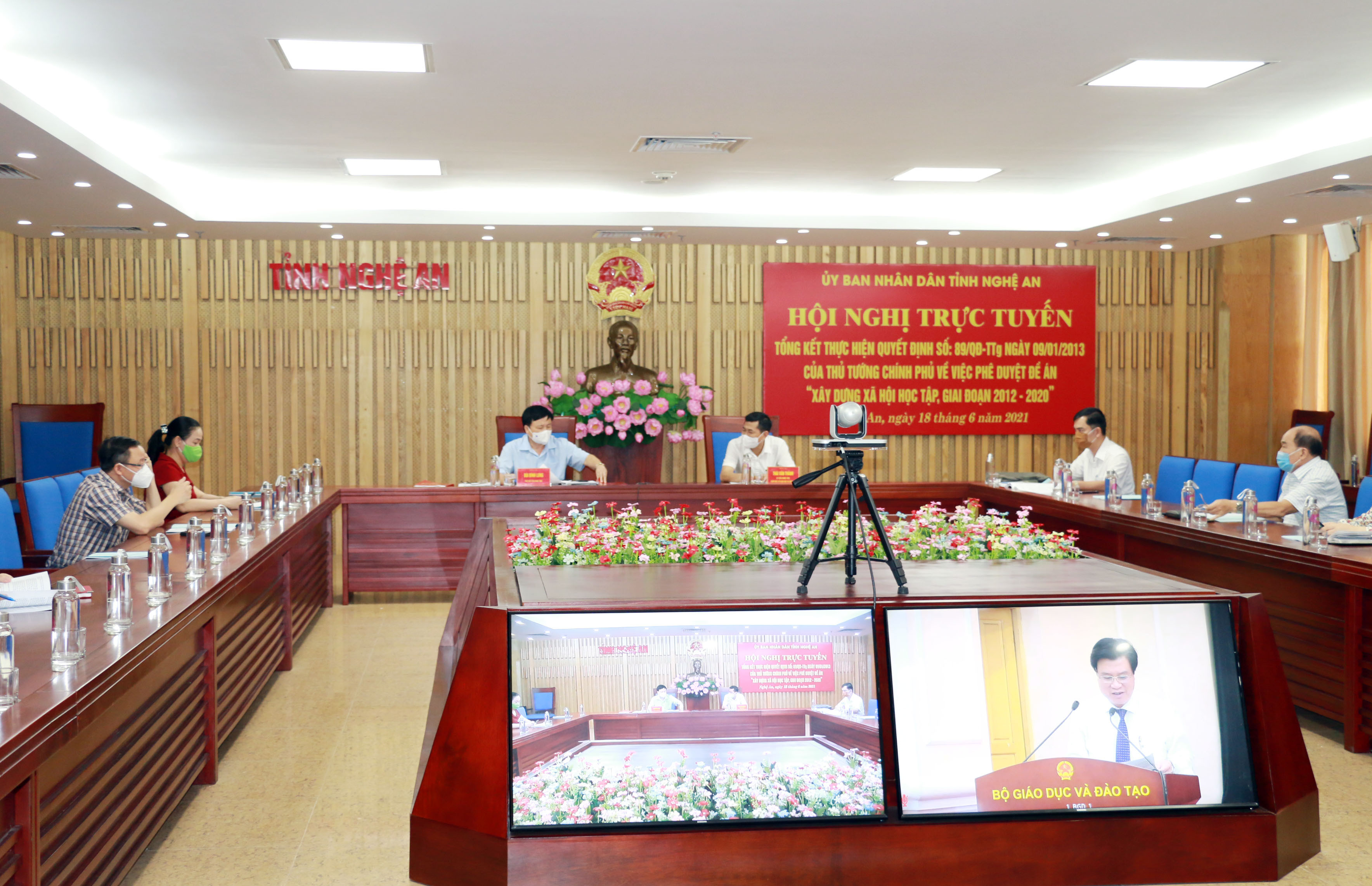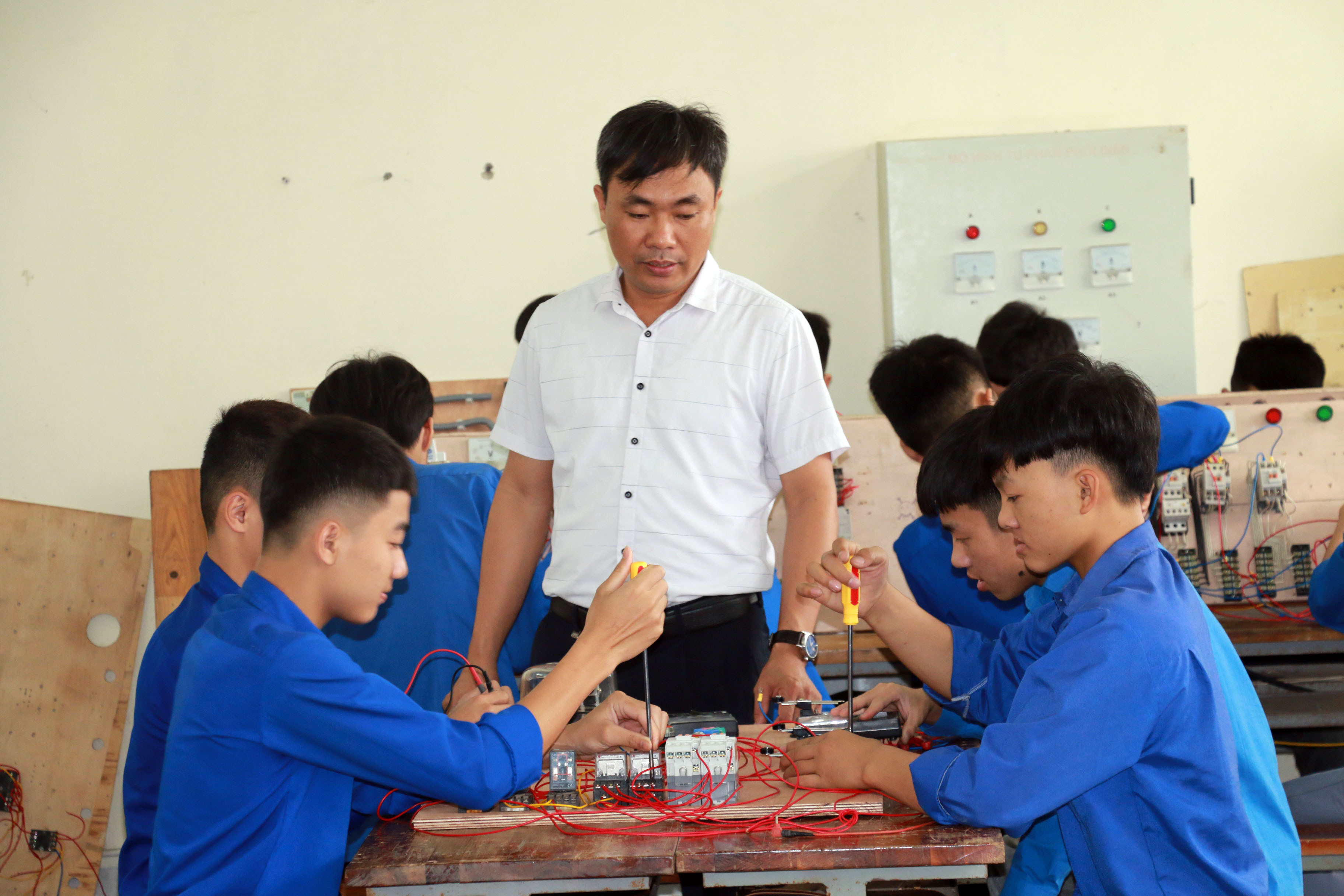Summary of the Project 'Building a learning society in the period 2012 - 2020'
(Baonghean.vn) - That is the direction of the Minister of Education and Training at the online conference summarizing the Project "Building a learning society in the period 2012 - 2020" held on the morning of June 18.
Comrades: Nguyen Kim Son - Member of the Party Central Committee, Minister of Education and Training; Nguyen Huu Do - Deputy Minister of Education and Training; Pham Tat Dong - Vice President of the Vietnam Association for Promoting Education chaired the conference.
At Nghe An bridge, there were comrades Bui Dinh Long - Vice Chairman of the Provincial People's Committee; Thai Van Thanh - Member of the Provincial Party Executive Committee, Director of the Department of Education and Training; Tran Xuan Bi - Chairman of the Provincial Association for Promotion of Education and comrades representing the leaders of relevant departments, branches and sectors.
Contribute to improving people's intellectual level
Project "Construction"learning society, period 2012 - 2020" was implemented since 2013 with 4 main goals, which are: eliminating illiteracy and universalizing education; improving learning outcomes in IT and foreign language proficiency; improving learning outcomes in professional qualifications, skills, and more effective labor skills; and perfecting life skills, building an increasingly happier personal and community life.
 |
| Comrades: Bui Dinh Long - Vice Chairman of the Provincial People's Committee; Thai Van Thanh - Member of the Provincial Party Executive Committee, Director of the Department of Education and Training chaired at Nghe An bridge. Photo: My Ha |
After 8 years of implementation with the attention of the Party and the State, the close and effective coordination between the Ministry of Education and Training and relevant ministries and branches in guiding, monitoring and urging implementation and the efforts of localities, the objectives set out in Project 89 have basically been completed, the tasks have been carried out on schedule and achieved important results.
Thanks to that, the work of universalizing education andliteracyhas been firmly consolidated, in which the literacy rate of people aged 15-60 is 97.85%; 94.92% of cadres and civil servants from the central to district levels are trained to meet the prescribed standards. In addition, the number of rural laborers and workers receiving vocational training is increasing; the rate of students learning life skills through subjects at educational institutions is 64.6%. Adult education has been focused on, and the intellectual level of the people has been raised.
 |
| English class for people working in tourism in Mon Son commune, Con Cuong district. Photo: My Ha |
At the conference, many presentations also shared some difficulties in the process of implementing the project. For example, thevocational trainingfor workers with limited qualifications, the rate of workers with level 6 and level 7 qualifications is still very low, only reaching about 7%. In many places, workers have not received investment to improve their skills, vocational training in rural areas is still ineffective. Some localities have not paid attention to this work and do not have funds to support vocational training to improve the quality of human resources.
Many community learning centers are still operating ineffectively, failing to meet the diverse learning needs of the people. The participation of higher education institutions in promoting learning, talent, and building a learning society is still limited...
Promote each individual's self-study awareness
Concluding the conference, Minister of Education and Training Nguyen Kim Son affirmed: Building a learning society is not only the task of the education sector but also of the entire political system, and the Ministry of Education and Training plays a core and important role. After 8 years of implementing Project 89, there have been many important results for the construction and formation of a learning society. That shows that this is a policy that has been issued promptly and put into practice.
 |
| Delegates attending the conference at Nghe An. Photo: My Ha |
Minister Nguyen Kim Son also emphasized the factor of self-study and that will contribute to building a learning society: When people look at a person, they must look at their ability to self-study and solve problems - this is the basic skill to solve other skills.
Therefore, a nation lacking people who know how to self-study will lack the capacity to solve problems and therefore developing a learning society is developing the nation's special resources. Therefore, the current responsibility is to build a learning society and gather a group of people who are studious, know how to study, know how to create learning needs and have full capacity to satisfy learning needs.
In the coming time, for the project to be effective, there must be innovation in the process of operation and implementation methods. The focus is to clearly identify the roles of the components and stakeholders in the process of building a learning society and each person must be aware of the need to work for self-development. At the same time, individuals must be given the opportunity to be recognized for their learning attitudes.
 |
| Vocational training for students at Hong Lam Technical Economic College. Photo: My Ha |
Educational institutions must also play a key role in the development of a learning society. In addition, there must also be the participation of businesses to create momentum for the development of a learning society. In the coming time, the Ministry will re-evaluate the model of Continuing Education Centers and community learning centers to strengthen the elements for effective operation.
The Minister of Education and Training also said that to build a learning society, it is necessary to strengthen the distance learning system and increase digital resource data sources to serve regular learning...
In the coming period, the Project "Building a learning society in the 2021-2030 period" aims to create fundamental changes in building a learning society towards forming an open, flexible, and interconnected education system, ensuring that by 2030 all people have equal opportunities to access quality lifelong education.


